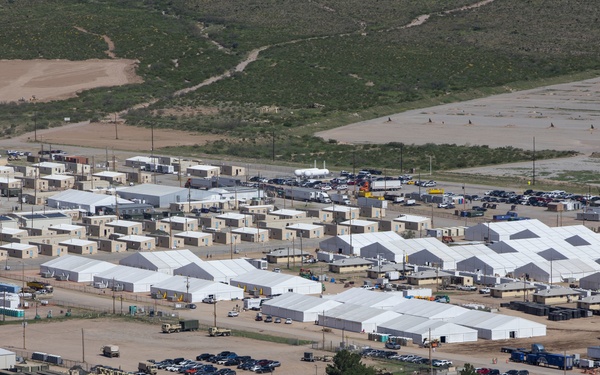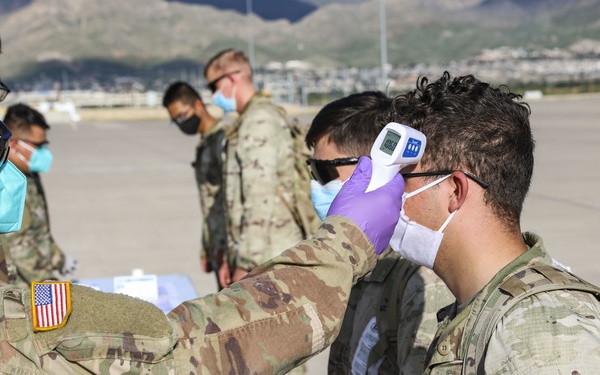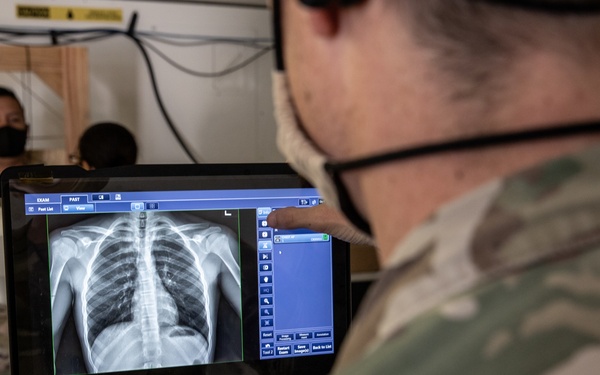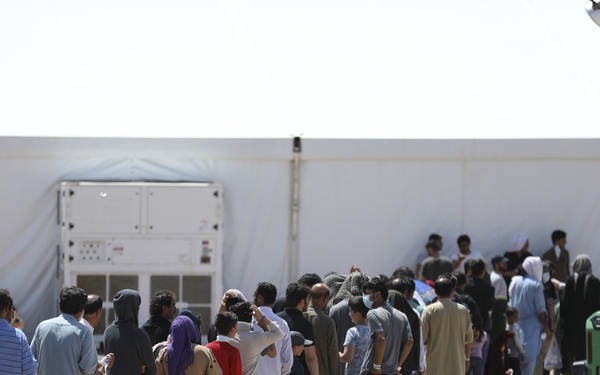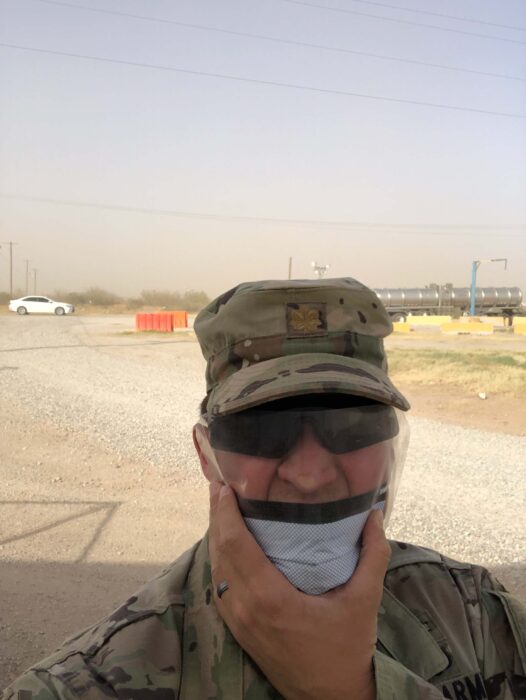My Icadosh named me Lala, or older brother in Dari. After reviewing Wikipedia, Lala actually refers to an experienced statesman assigned as a tutor to young princes during the Ottoman era. He is my friend and a necessity for my job here at Doña Ana. I think the name is fitting. My job has many tasks: the most important is to help our guests with their new lives in America. We (Icadosh and I) mentor and entertain all who are seated at our table. Along with their meager belongings they bring their worries, troubles, hopes and families. They sit on steel or plastic folding chairs; the men look us in the eyes and the women do not. The children use universal language: play.
There is a picture on the internet of Doña Ana from around 1936. When I first laid eyes on the camp, time and progress had little influence on anything outside the New Mexico National Guard’s complex. Asphalt and dry, tan buildings appear to be the only differences between 1936 and 2021. It’s amazing how attention and toil over a month and a half can bring progress to this austere environment.
Now: white tents, tan military vehicles marked 1st AD or Armored Division, diesel powered portable lighting, camouflage netting, pallets of blue bottled water, and contractor equipment litters the complex at regular intervals. A peak under the netting often reveals a few Soldiers seated in regulated military relaxation posture while wearing black masks. The children speak with the Soldiers in their universal language. The children speak all the time and I find this beautiful.
The most important things to communicate here are put on paper, but what is written is not for the military. It is for the Guests in preparation for their mission. It tells their stories and demonstrates their needs. The paper flows through our work area and goes to the decision-makers who need this communication. It is important to be fastidious when handling the paper and their folders.
Disorganization affects lives, and miscommunication is concerning. Luckily, we are fastidious and dedicated to the mission. The military rewards attention to detail and facilitates work under pressure. In true military fashion, we complain, but we meet our objectives when the bullet hits the chamber. I wish I knew more about working humanitarian missions
A year of graduate school during a pandemic taught me the importance of self-study, and I am currently a student of Doña Ana. The lessons include Dari, how to conduct a humanitarian mission, a brief overview into lucratively complex military contracting, how to work with non-governmental organizations (NGOs), my nurse practitioner residency, how to be a father via Facetime and Nintendo Switch, mental wellness, gender equality trans-culture, theology (Islam, Christianity, Atheism, etc.) and intelligence gathering. Remember how paper is not for the military? My advice on intelligence gathering is to walk through all the doors and meet all the people, as little is written at Doña Ana to guide our operation. Take this advice for what it’s worth, it hasn’t failed me. The best laid orders are written after the mission, I assume.
In addition to Icadosh: the Mailman, Summit, Gory, Engine, Lincoln, Vitamin E, Festival, Carnival and the Man are teaching me Dari. It’s not all informal; I’m also taking a real course through the Defense Language Institute (a true gem). I make attempts with the guests in various phrases, but my American accent does not bring justice to the language. The two responses I often get from Guests are puzzlement or elation. Dari is deep in the throat and English is always on the tip of the tongue, about to fall out.
*The views expressed are those of the author and do not reflect official policy or positions of the U.S. Army, Department of State, Department of Homeland Security or any other official agency of the U.S. government.
Submitted by Josh Lawler DNP, APRN, FNP-C, CEN
Dr. Josh Lawler will be presenting on Operation Allies Welcome next week at the Association of Military Surgeons of the United States Conference.

